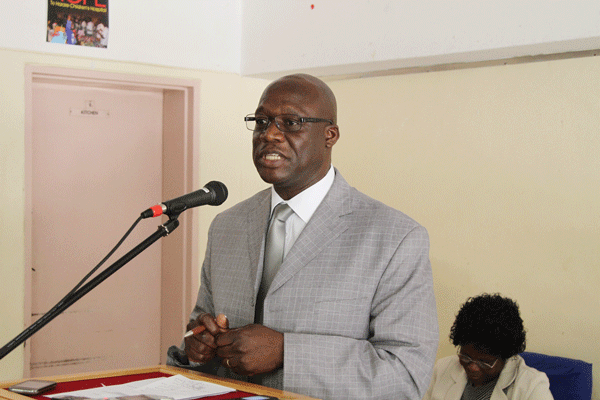
ONLY 1 069 out of the thousands of traditional medical practitioners in the country are registered, Parliament heard yesterday.
by VENERANDA LANGA

Appearing before the Parliamentary Committee on Health and Child Care, Health Ministry permanent secretary, Gerald Gwinji also said 13 traditional practice clinics and 14 faith healers were registered.
He said despite most traditional healers being unregistered, a World Health Organisation survey revealed 80% of people living with HIV/Aids in Zimbabwe visited traditional healers, while 52% of pregnant women also admitted to using traditional concoctions to induce labour or assist in facilitating easy birth.
Acting committee chairperson, Mathias Ndlovu said MPs had noted a proliferation of traditional medicines in the country – some of them being sold at street corners, and even packaged in capsules, but without due care to dosage and labelling of ingredients.
“The Traditional Medicines Council has so far registered 1 069 traditional practitioners. It has registered 13 clinics and 13 practitioners and 14 faith healers,” Gwinji said.
“In terms of toxicity, yes traditional medicine can be risky because of not so tight regulations, where people are exposed to issues of poor quality, while some products are adulterated, some have high, chloroquine content, and other medicines are counterfeits, coupled with the fact that we have a lot of unqualified traditional practitioners that do misdiagnosis and at times give misinformation to attract patients.”
He said in as much as conventional bio medicine also has side effects, the problem is that there has not been research in traditional medicine to find out the amount of pollution that can be in a plant.
- Chamisa under fire over US$120K donation
- Mavhunga puts DeMbare into Chibuku quarterfinals
- Pension funds bet on Cabora Bassa oilfields
- Councils defy govt fire tender directive
Keep Reading
“For instance, a moringa tree, which grows at Mukuvisi River, will absorb some heavy metals that are not found when it is grown in healthy rural soils. So it depends on where the plant grows and a Harare traditional healer might administer a plant which has absorbed heavy metals because of the area where it grows. There is need for research in terms of growing of the plants, packaging, storage, sterilisation, toxicity, and others,” Gwinji said.
He said despite having a lot of traditional medicines in the country, Zimbabwe is a net importer of traditional herbs from China and India, which have more developed systems of research, manufacturing and packaging of the medicine.
Although Gwinji said traditional medicines can be good, he said there is need for interactive research with modern biomedical practices. “We need to have a 10 year biomedical strategy, which will remove traditional medicines from the tag that they are used for witchcraft.”
The government has failed to support traditional medicine financially every year.
The department has asked for a budget of $650 000 annually, but they got an allocation of $20 000 and only $1 000 was disbursed.











